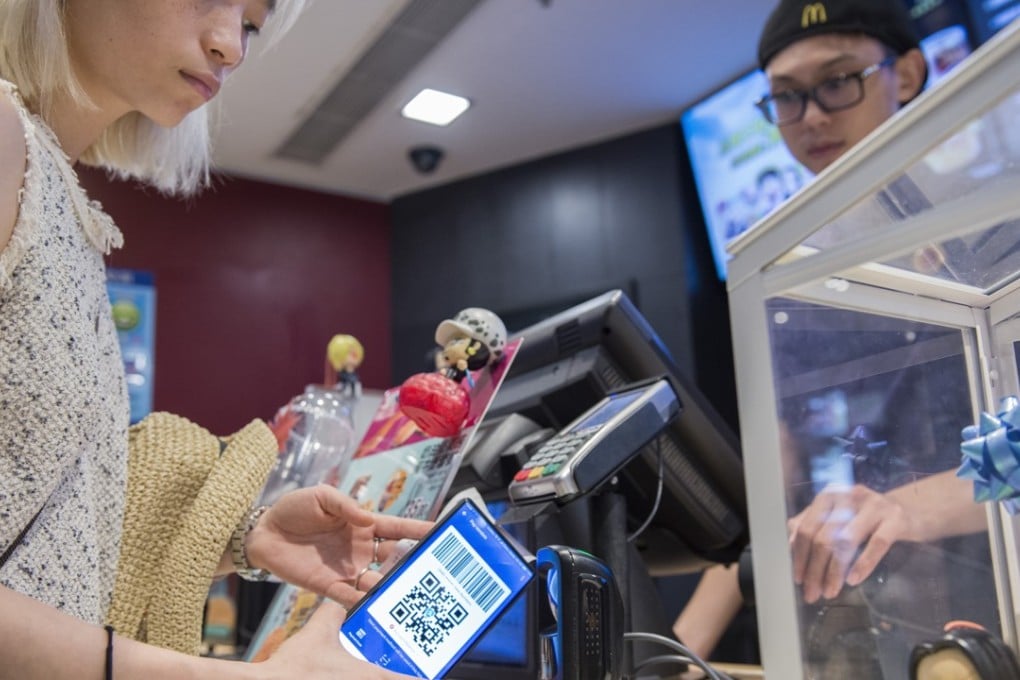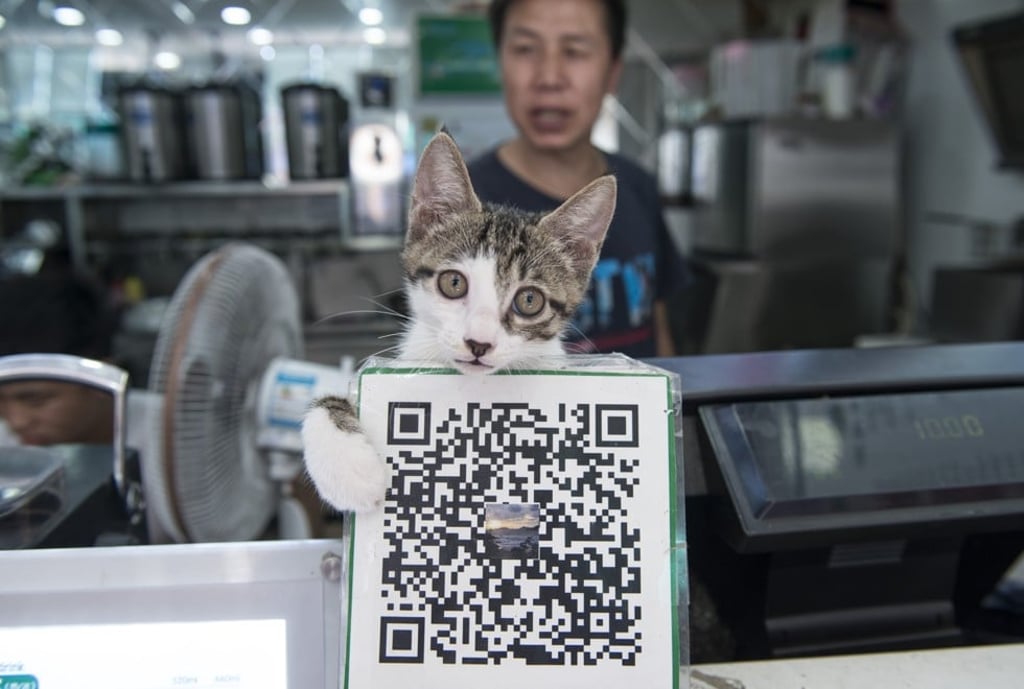Going cash free: why China is light years ahead in the online payment revolution
We find out if it’s possible to live in Shanghai without paper money or bank cards and discover how online payments have dethroned cash as king in digital revolution that’s being led by two big players – Alipay and Tenpay

“Zhifubao or Weixin,” asks the waitress. It’s a question that catches me by surprise because I was expecting a different one: “cash or card?” It has been a simple meal at Yershari, a Xinjiang chain restaurant in Shanghai’s Hongkou Plaza, and now as I eye my wallet the waitress gestures towards the cashier by the door. I can settle up the old-fashioned way over there, I’m told – the payment device she’s carrying scans QR codes. “Most of our clients use their phones now,” she says, with a shrug.
China is leading the world in online payments. Buying goods and services using smartphone apps that provide mobile-payment services has caught on here like nowhere else; the rate of adoption is dizzying in a country that even state media acknowledges is hurtling towards a cashless society.
When I read on Weibo that beggars in the city are using Alipay and WeChat Pay (Zhifubao and Weixin, respectively, in Putonghua) to collect handouts, I decide it’s time to find out if it’s possible to live in Shanghai without paper money or bank cards.
I’m already hooked up to Alipay and Tencent’s WeChat Pay. They are linked to my bank account, which funds an online e-wallet. I use their services rarely, only for web purchases. But you can’t engage with the amazing universe of Taobao – the gargantuan shopping platform of e-commerce giant Alibaba Group (owner of Alipay and the South China Morning Post) – if you don’t have a way to pay for its gazillion products. Where else can you pick up a cast-metal Communist Party emblem, a plastic replica of an ancient Chinese opera mask and a David Beckham sex doll all in the same place?

